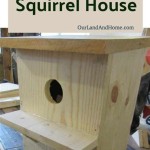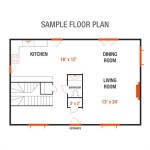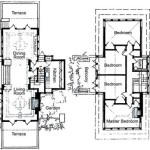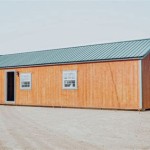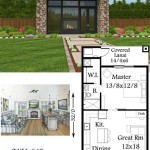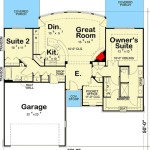Small guest house plans are becoming increasingly prevalent as a solution for homeowners who need additional space for guests, extended family, or those seeking to generate passive rental income. These compact structures, typically sized between 500 and 1,200 square feet, offer a cost-effective and versatile way to accommodate additional occupants without compromising the integrity of your main residence.
For instance, a family with frequent out-of-town visitors can benefit from having a dedicated guest house, providing their guests with a private and comfortable space while allowing for ample interaction with the main household. Additionally, small guest houses can serve as a secondary income stream by renting them out to vacationers or tenants seeking temporary accommodation.
In the following sections, we will explore the various factors to consider when designing small guest house plans, including size, layout, amenities, and building materials. We will also provide tips for creating a functional and aesthetically pleasing structure that complements your existing home and enhances its overall value.
When designing small guest house plans, there are several important points to consider:
- Size and layout
- Amenities and finishes
- Building materials
- Energy efficiency
- Site selection
- Building codes
- Budget
- Zoning restrictions
- HOA regulations
- Resale value
By carefully considering these factors, you can create a functional and aesthetically pleasing guest house that complements your existing home and enhances its overall value.
Size and layout
One of the most important factors to consider when designing small guest house plans is the size and layout. The size of the guest house will be determined by a number of factors, including the number of guests you typically have, the length of their stay, and your budget.
The layout of the guest house should be carefully planned to ensure that it is both functional and comfortable. The guest house should have its own private entrance, as well as a bathroom and kitchenette. If possible, the guest house should also have a separate living area and bedroom. This will give your guests a sense of privacy and independence.
Here are some additional tips for designing the size and layout of your small guest house:
- Consider the size of your lot. You don’t want the guest house to be too large or too small for the space.
- Think about the number of guests you typically have. If you only have a few guests at a time, you may not need a large guest house.
- Consider the length of their stay. If your guests are only staying for a few days, you may not need to provide them with a full kitchen. li>Set a budget for the guest house. This will help you determine how large and elaborate the guest house can be.
By carefully considering these factors, you can design a small guest house that is both functional and comfortable for your guests.
Amenities and finishes
Once you have determined the size and layout of your small guest house, you can start to think about the amenities and finishes. The amenities you choose will depend on the type of guests you expect to have and the length of their stay. For example, if you expect to have guests who are staying for a week or more, you may want to include a full kitchen and laundry facilities. If you expect to have guests who are only staying for a few days, you may be able to get away with a kitchenette and a stackable washer and dryer.
- Kitchenette vs. full kitchen
A kitchenette is a small kitchen that typically includes a sink, refrigerator, microwave, and toaster. A full kitchen includes a stove, oven, dishwasher, and other appliances. If you expect to have guests who are cooking meals, you will need to include a full kitchen. If you don’t think your guests will be doing much cooking, a kitchenette may be sufficient.
- Bathroom
The bathroom in your guest house should be private and include a toilet, sink, and shower. If you have the space, you may also want to include a bathtub.
- Living area
The living area in your guest house should be comfortable and inviting. It should include a couch, chairs, and a TV. You may also want to include a fireplace or wood stove if you live in a cold climate.
- Bedroom
The bedroom in your guest house should be private and include a bed, dresser, and nightstand. If you have the space, you may also want to include a desk or workspace.
The finishes you choose for your guest house will depend on your personal style and budget. You may want to choose finishes that are similar to the finishes in your main house, or you may want to choose something different. No matter what you choose, make sure the finishes are durable and easy to clean.
Building materials
The choice of building materials for your small guest house will depend on a number of factors, including your budget, the climate you live in, and the style of the guest house. Here are a few of the most popular building materials used for small guest houses:
- Wood
Wood is a classic building material that is both durable and affordable. Wood-frame construction is relatively easy and inexpensive, and it can be used to create a variety of different styles of guest houses. However, wood is susceptible to rot and termites, so it is important to take steps to protect it from the elements.
- Brick
Brick is a durable and fire-resistant building material that can last for centuries. Brick homes are also relatively energy-efficient, as brick retains heat well. However, brick is more expensive than wood, and it can be difficult to work with. As a result, brick homes typically cost more to build than wood homes.
- Stone
Stone is a beautiful and durable building material that can give your guest house a unique and rustic look. However, stone is also very expensive and difficult to work with. As a result, stone homes are typically the most expensive to build.
- Concrete
Concrete is a strong and durable building material that is also relatively affordable. Concrete homes are also fire-resistant and energy-efficient. However, concrete can be difficult to work with, and it can be difficult to achieve a high-quality finish.
Ultimately, the best building material for your small guest house will depend on your individual needs and preferences. Be sure to weigh the pros and cons of each material before making a decision.
Energy efficiency
In addition to the size, layout, amenities, and finishes of your small guest house, you should also consider its energy efficiency. An energy-efficient guest house will be more comfortable to live in and will cost less to operate. Here are a few tips for designing an energy-efficient small guest house:
- Insulate the walls, roof, and floor
Insulation is one of the most important factors in energy efficiency. It helps to keep the heat in during the winter and the cool air in during the summer. Make sure to insulate all of the walls, the roof, and the floor of your guest house.
- Install energy-efficient windows and doors
Windows and doors are another major source of heat loss. Make sure to install energy-efficient windows and doors in your guest house. Energy-efficient windows and doors are designed to keep the heat in during the winter and the cool air in during the summer.
- Use energy-efficient appliances
The appliances in your guest house can also contribute to its energy consumption. Make sure to choose energy-efficient appliances when possible. Energy-efficient appliances use less energy to operate, which can save you money on your energy bills.
- Install a solar energy system
A solar energy system can help to reduce your energy costs even further. Solar energy systems generate electricity from the sun, which can be used to power your guest house. Solar energy systems are becoming more and more affordable, and they can be a great way to save money on your energy bills.
By following these tips, you can design an energy-efficient small guest house that will be comfortable to live in and will cost less to operate.
Site selection
The site you choose for your small guest house is an important decision. The site should be large enough to accommodate the guest house, and it should be located in a convenient location for your guests. Here are a few things to consider when choosing a site for your small guest house:
- Size
The size of the site will depend on the size of the guest house you plan to build. You will need enough space for the guest house itself, as well as for a driveway, parking, and landscaping.
- Location
The location of the site is important for both convenience and privacy. The site should be located in a convenient location for your guests, but it should also be private enough that your guests can enjoy their stay without being disturbed.
- Access
The site should be easily accessible for your guests. The driveway should be wide enough to accommodate large vehicles, and the parking area should be well-lit and secure.
- Utilities
The site should have access to all of the necessary utilities, including water, sewer, and electricity. If the site does not have access to these utilities, you will need to factor in the cost of installing them.
Once you have considered all of these factors, you can start to narrow down your choices for a site for your small guest house.
Building codes
Building codes are regulations that govern the construction of buildings. These codes are in place to ensure that buildings are safe and habitable. Building codes are typically set by local governments, but they can also be set by state or federal governments.
When designing and building a small guest house, it is important to comply with all applicable building codes. Building codes will vary depending on the location of the guest house, but they typically cover the following areas:
- Structural safety
Building codes will specify the minimum requirements for the structural safety of a building. These requirements will include the size and spacing of structural members, the type of foundation required, and the wind and snow loads that the building must be able to withstand.
- Fire safety
Building codes will also specify the minimum requirements for fire safety. These requirements will include the installation of smoke detectors and fire extinguishers, the use of fire-resistant materials, and the provision of adequate exits.
- Electrical safety
Building codes will also specify the minimum requirements for electrical safety. These requirements will include the type of wiring that can be used, the size of electrical panels, and the installation of ground fault circuit interrupters (GFCIs).
- Plumbing safety
Building codes will also specify the minimum requirements for plumbing safety. These requirements will include the size and type of piping that can be used, the installation of water heaters, and the provision of adequate drainage.
By complying with all applicable building codes, you can help to ensure that your small guest house is safe and habitable.
In addition to the building codes listed above, there may be other codes that apply to the construction of your small guest house. For example, if your guest house is located in a flood zone, you will need to comply with flood zone regulations. It is important to check with your local building department to determine which codes apply to your project.
Budget
One of the most important factors to consider when designing and building a small guest house is the budget. The cost of building a guest house will vary depending on a number of factors, including the size of the guest house, the materials used, and the complexity of the design. However, there are a number of ways to save money on the cost of building a guest house.
One way to save money is to choose a smaller guest house. Smaller guest houses require less materials and labor to build, which can save you money on the overall cost of construction. Another way to save money is to choose less expensive materials. For example, you could choose to use vinyl siding instead of wood siding, or you could choose to use laminate countertops instead of granite countertops.
You can also save money by simplifying the design of your guest house. A simpler design will require less materials and labor to build, which can save you money on the overall cost of construction. For example, you could choose to build a guest house with a simple rectangular floor plan instead of a more complex floor plan with multiple angles and curves.
Finally, you can save money by doing some of the work yourself. If you have the skills and the time, you can save money by doing some of the work on your guest house yourself, such as painting, installing flooring, or landscaping.
By following these tips, you can save money on the cost of building a small guest house. However, it is important to remember that building a guest house is still a significant investment. Be sure to carefully consider your budget before you start construction.
Zoning restrictions
Zoning restrictions are regulations that govern the use of land. These restrictions are typically set by local governments, and they can vary from one municipality to another. Zoning restrictions can impact the construction of small guest houses in a number of ways. For example, zoning restrictions may:
- Limit the size of guest houses
- Restrict the location of guest houses on a property
- Require guest houses to have certain features, such as a separate entrance
- Prohibit guest houses from being used for certain purposes, such as short-term rentals
It is important to check with your local zoning department to determine the specific zoning restrictions that apply to your property. If you violate zoning restrictions, you may be subject to fines or other penalties.
In some cases, you may be able to get a variance from the zoning restrictions. A variance is a permission to build something that would otherwise be prohibited by the zoning restrictions. To get a variance, you will need to submit a request to your local zoning board. The zoning board will consider your request and make a decision based on the following factors:
- The impact of the proposed construction on the surrounding neighborhood
- Whether the proposed construction is consistent with the comprehensive plan for the municipality
- Whether the proposed construction is in the public interest
Getting a variance can be a difficult process, but it may be worth it if you are unable to build your guest house without one.
HOA regulations
HOA regulations are rules and regulations that are established by homeowners associations (HOAs). HOAs are organizations that are responsible for managing and maintaining common areas and facilities in a development. HOA regulations can impact the construction of small guest houses in a number of ways. For example, HOA regulations may:
- Limit the size of guest houses
- Restrict the location of guest houses on a property
- Require guest houses to have certain features, such as a separate entrance
- Prohibit guest houses from being used for certain purposes, such as short-term rentals
It is important to check with your HOA to determine the specific HOA regulations that apply to your property. If you violate HOA regulations, you may be subject to fines or other penalties.
In some cases, you may be able to get a variance from the HOA regulations. A variance is a permission to build something that would otherwise be prohibited by the HOA regulations. To get a variance, you will need to submit a request to your HOA board. The HOA board will consider your request and make a decision based on the following factors:
- The impact of the proposed construction on the surrounding neighborhood
- Whether the proposed construction is consistent with the governing documents for the HOA
- Whether the proposed construction is in the best interests of the HOA
Getting a variance from HOA regulations can be a difficult process, but it may be worth it if you are unable to build your guest house without one.
Resale value
The resale value of your small guest house will be impacted by a number of factors, including the size, location, and amenities of the guest house, as well as the overall real estate market. However, there are a few things you can do to improve the resale value of your guest house:
- Build a high-quality guest house
The quality of the construction of your guest house will have a big impact on its resale value. Make sure to use high-quality materials and workmanship, and to build the guest house to code. A well-built guest house will be more durable and will require less maintenance, which will make it more attractive to potential buyers.
- Choose a desirable location
The location of your guest house will also impact its resale value. Guest houses that are located in desirable neighborhoods or near popular tourist destinations will be more valuable than guest houses that are located in less desirable areas. If possible, choose a location for your guest house that is convenient for guests and that is close to amenities.
- Include desirable amenities
The amenities that you include in your guest house will also impact its resale value. Guest houses that have desirable amenities, such as a full kitchen, a private bathroom, and a comfortable living area, will be more valuable than guest houses that do not have these amenities. Consider the needs of your potential guests when choosing the amenities to include in your guest house.
- Maintain the guest house in good condition
The condition of your guest house will also impact its resale value. Make sure to maintain the guest house in good condition by repairing any damage promptly and by keeping it clean and well-maintained. A well-maintained guest house will be more attractive to potential buyers and will command a higher price.
By following these tips, you can improve the resale value of your small guest house. A well-built, well-located, and well-maintained guest house will be a valuable asset to your property.










Related Posts

